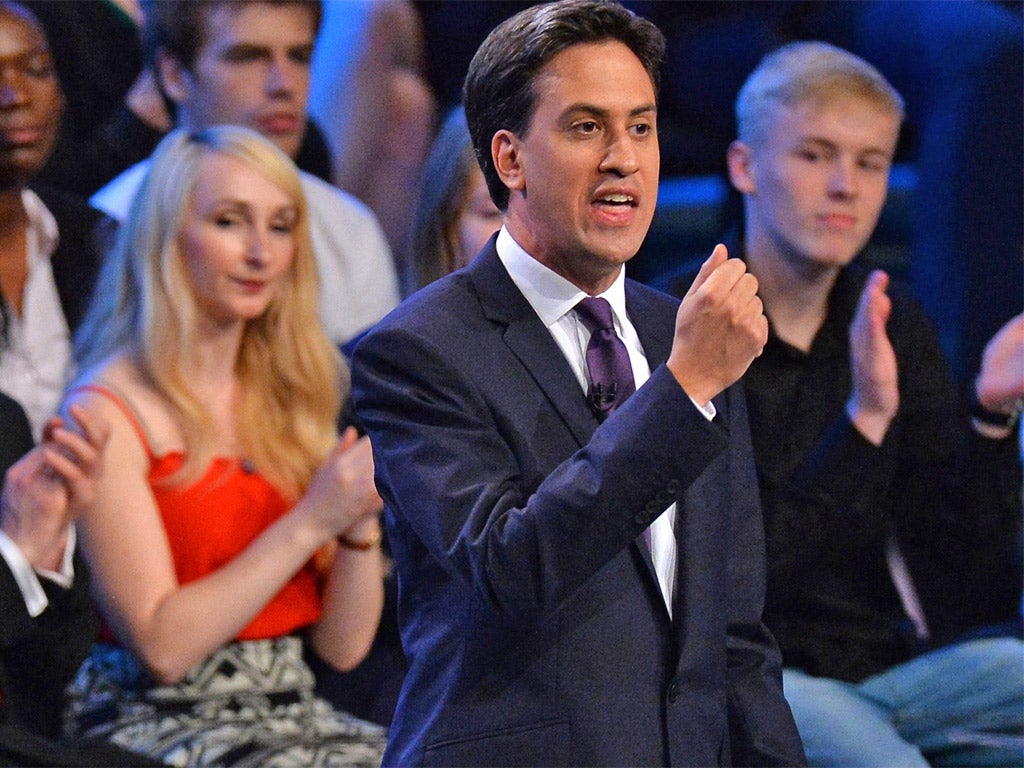Birth of a leader: Ed Miliband boldly fleshes out policy vision in Labour Party conference speech
The risk is that Tories and their newspapers will portray what he is doing as a return to the 1970s


For the second year running Ed Miliband delivered a speech without notes. Once again the content was substantial enough to outshine the audacious manner of the delivery.
Twelve months ago Miliband claimed that Labour was the “One Nation” party while daring to make a left of centre argument about what form that nation would take. But his speech was largely policy free. Now he has fleshed out his argument that active government can have a benevolent impact on the economy rather than always be a sluggish obstacle. Such an assertion would not be contentious across the political spectrum of most equivalent sized countries in Europe, but Miliband challenges fashionable orthodoxy in parts of England, including powerful sections of the media.
He does so with a populist touch, promising “a government that fights for you” – not a bad way of making a pitch for social democracy. Miliband is an intellectual who has fought or been close to the heart of a lot of general election campaigns. He is not a political novice. A price freeze on heating bills will reassure many voters alarmed by their impotence as charges rise. It is also a policy that does not directly imply a public spending rise. The sheltered energy companies take the hit. Miliband and Ed Balls have fought four elections avoiding “tax and spend” traps. They will not fall into them next time.
Miliband also announced other policies that will alarm those used to the outdated light-regulation culture of the last 30 years, but will reassure many of those who fear government steps aside too often. The essence of Miliband’s message is that when markets do not work for consumers the government will intervene.
“Britain can do better than this” was his constant reiteration, a conflation of his One Nation” message last year and New Labour’s anthem that things can only get better. Tonally the reiteration worked, conveying optimism that a country can aim higher, but one tempered by the unavoidable constraints of economic crisis.
He addressed two specific and extremely daunting challenges in a very direct way. Acutely aware of his own dire personal ratings, he spoke of his leadership and how he “stood up to the strong” – specifically citing his call for a judicial inquiry into the media and his opposition to David Cameron’s timetable for war in Syria.
Later he declared that he was ready, if the Conservatives wanted, to make the next election one about leadership. What made this assertion of leadership less cringe-worthy than it might have been is that Miliband did not affect an embarrassing machismo. His style was relaxed, engaging, conversational and yet at times passionate. He seemed far more authentic than in recent clunky interviews.
He also dealt with the potentially awkward fact for him that the economy is growing by specifically comparing this recovery with the one in the 1980s. He pointed out that voters felt better off then, in some cases buying one or two cars as their incomes grew. Conservative governments were returned with landslide majorities. In arguing that this recovery was different, he was both developing an argument and clinging to a hope that there will be no “feel-good factor” by the time of the next election. If there is, he is doomed.
The risks arising from Miliband’s speech are obvious. The Conservative leadership and their more loyal newspapers will portray what he is doing as a return to the 1970s, but they need to be careful about how they do this. Voters and readers will not be thrilled if the prospect of lower bills is dismissed as unachievable. The bigger danger for Miliband is that the policies unravel in the coming days, although I assume a leader with his experience of compiling manifestos to withstand intense scrutiny has the answers to precisely how the freeze and other policies would work.
I suspect the harder questions will relate to the house-building programme. How quickly will they be built? Where will they be built? How much will he be willing to borrow in order to build them? It is quite dangerous for an opposition not to have policies, but is even more dangerous to have policies if they have not been clearly thought through.
In terms of perceptions of Miliband as a leader, the speech was an unqualified success. The mood of this conference has been introspective, subdued and quite gloomy. There has been a lot of talk about Miliband’s leadership. The speech showed he can be an effective public performer and can survive at the nightmarish interface where policy-making meets the need to have wide electoral appeal. As I pointed out on Monday, Miliband is far more battle-hardened than he seems.
The key question for him is how he and his team follow up the speech. Miliband has been working on the address for months, but now it has been successfully delivered he must not disappear from view. The demands of leadership never stop. He is innovative and sometimes bold and yet is considered to be weak and defensive. When in opposition Tony Blair was often cautious and defensive yet was perceived to be daringly radical. Miliband has passed a test, but inevitably there are many more to come.

Join our commenting forum
Join thought-provoking conversations, follow other Independent readers and see their replies